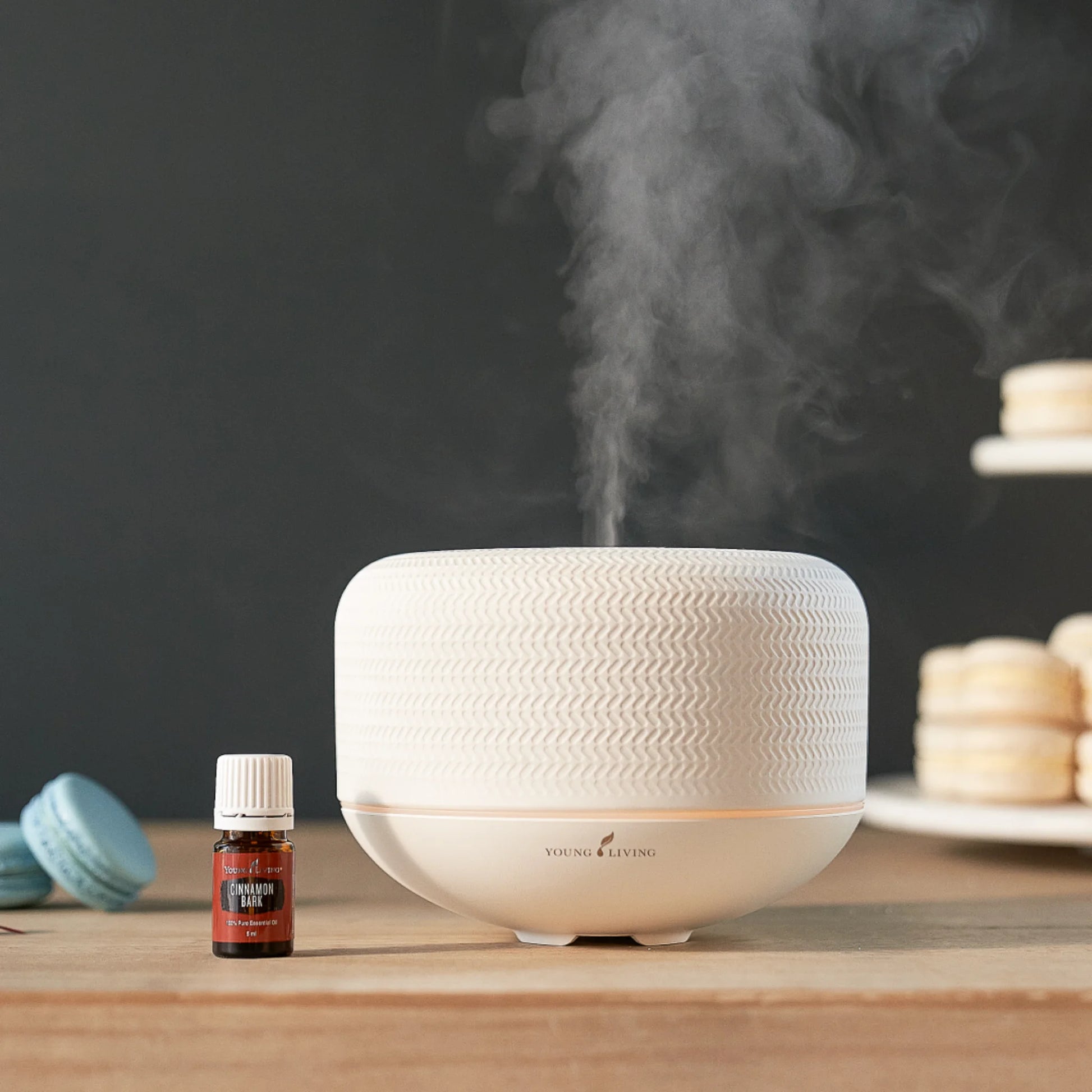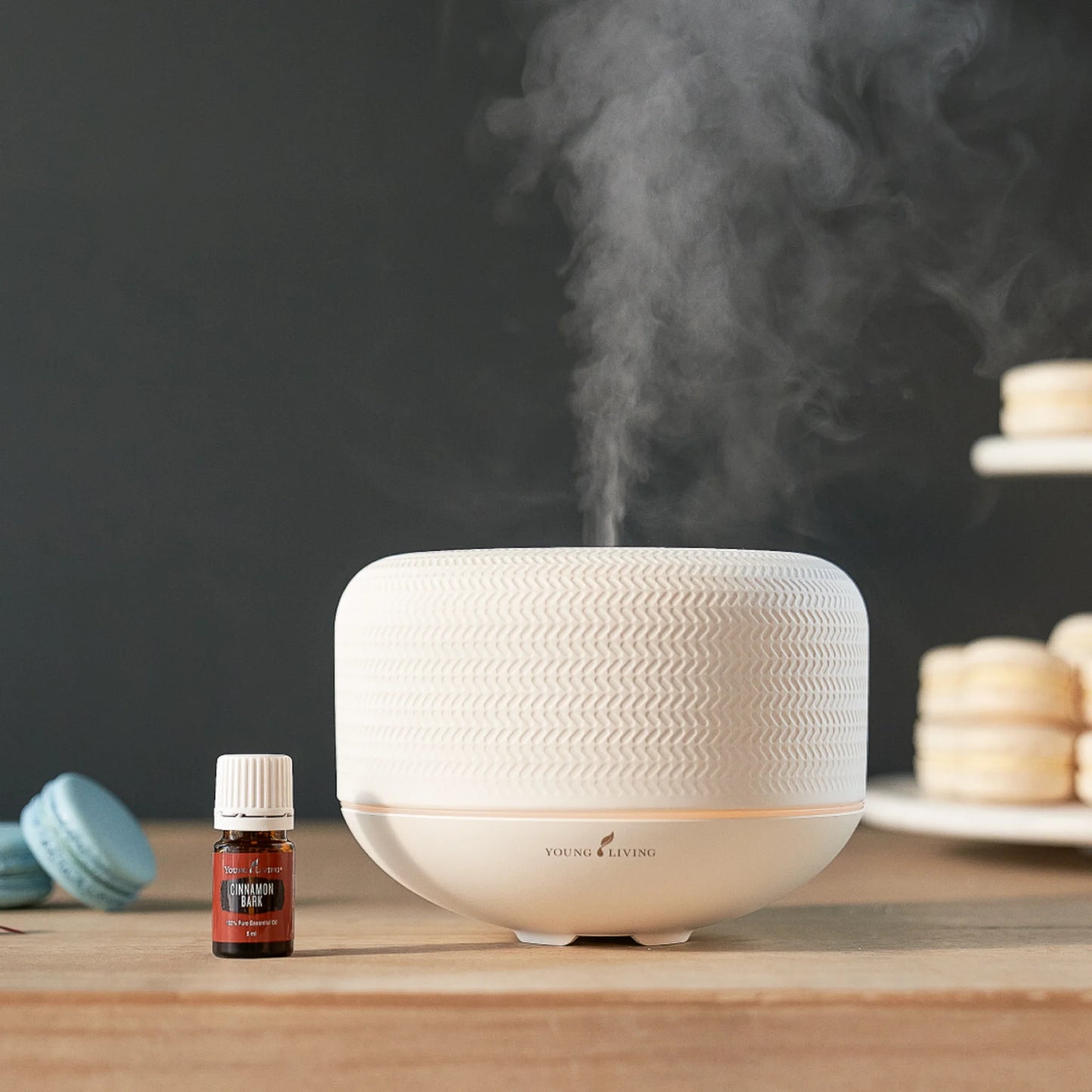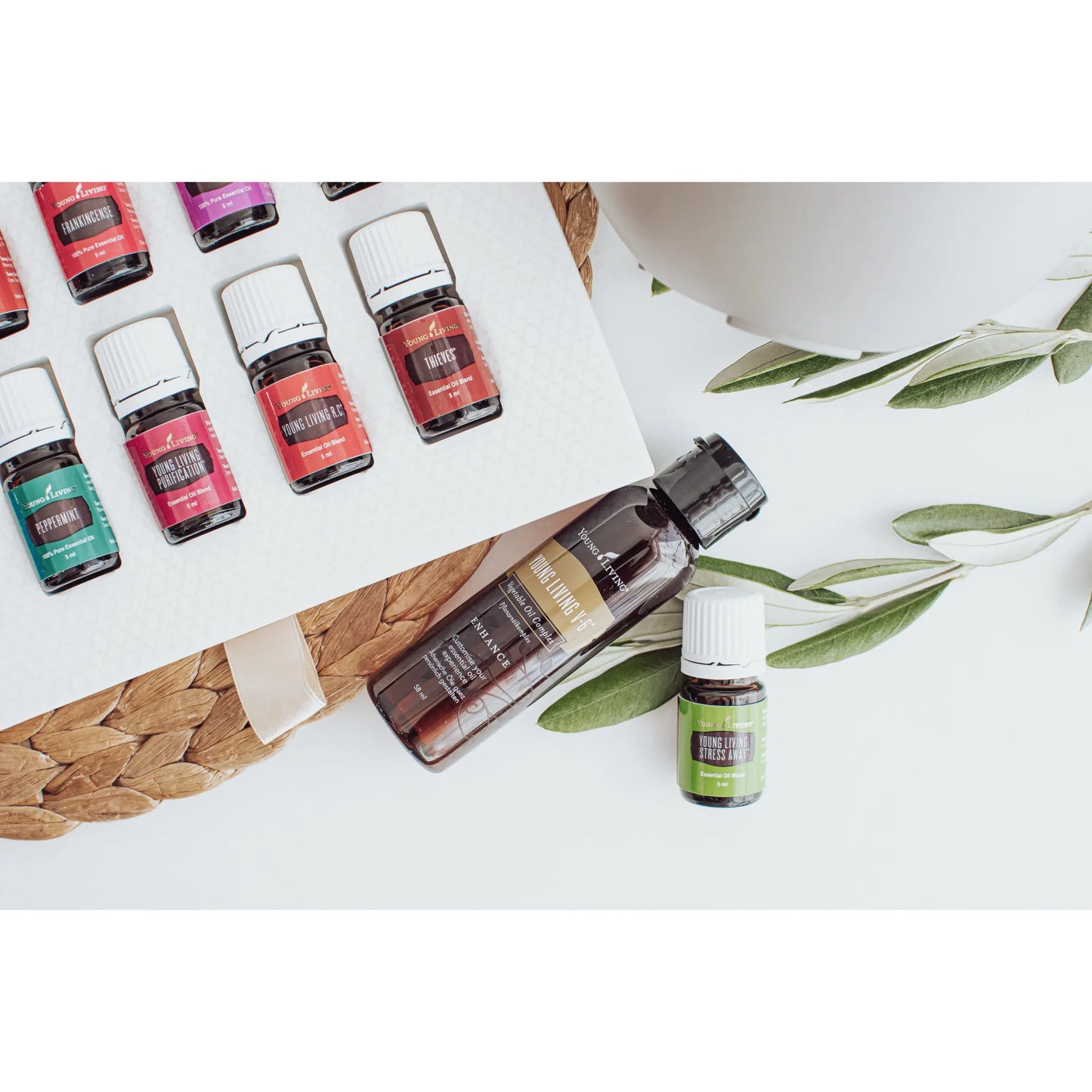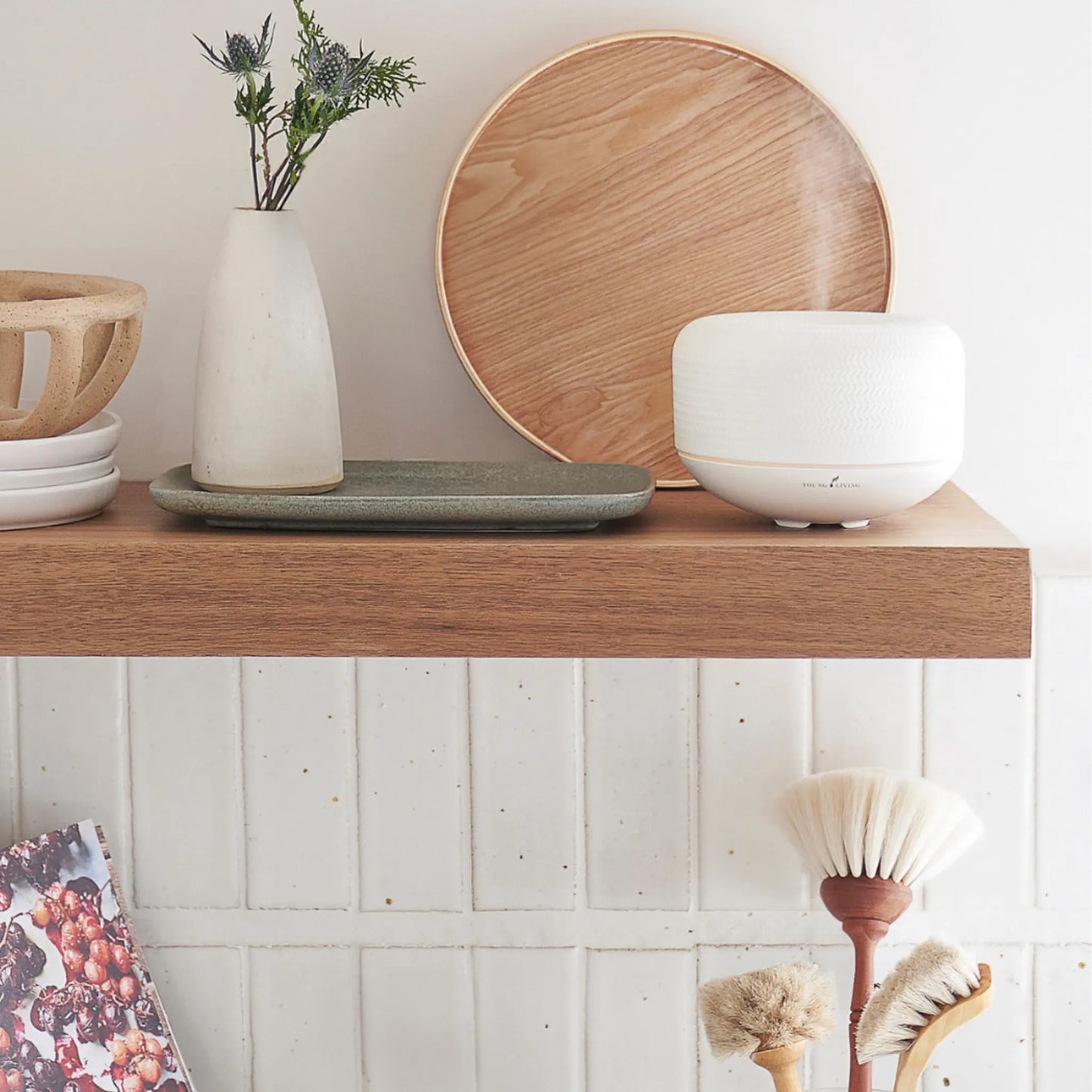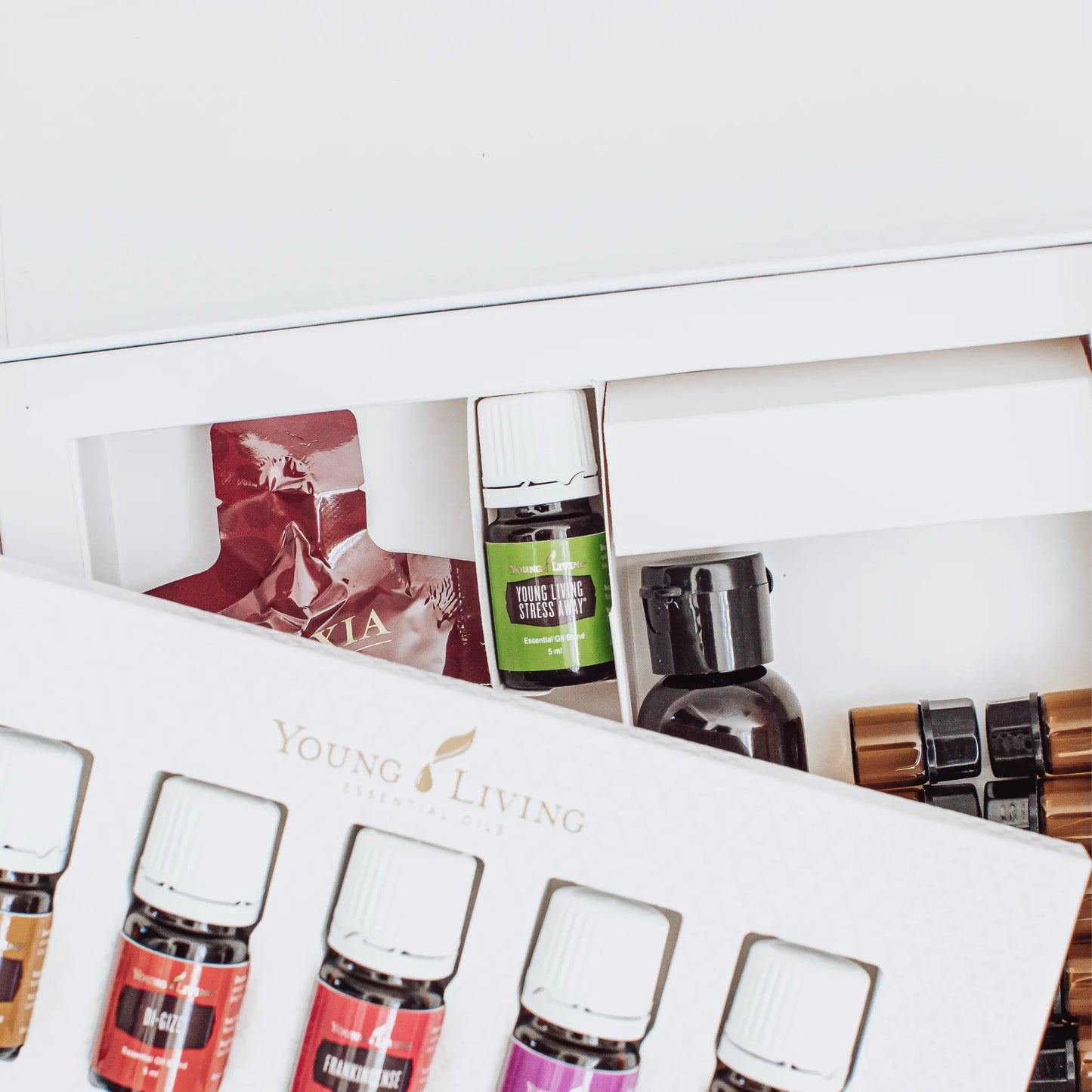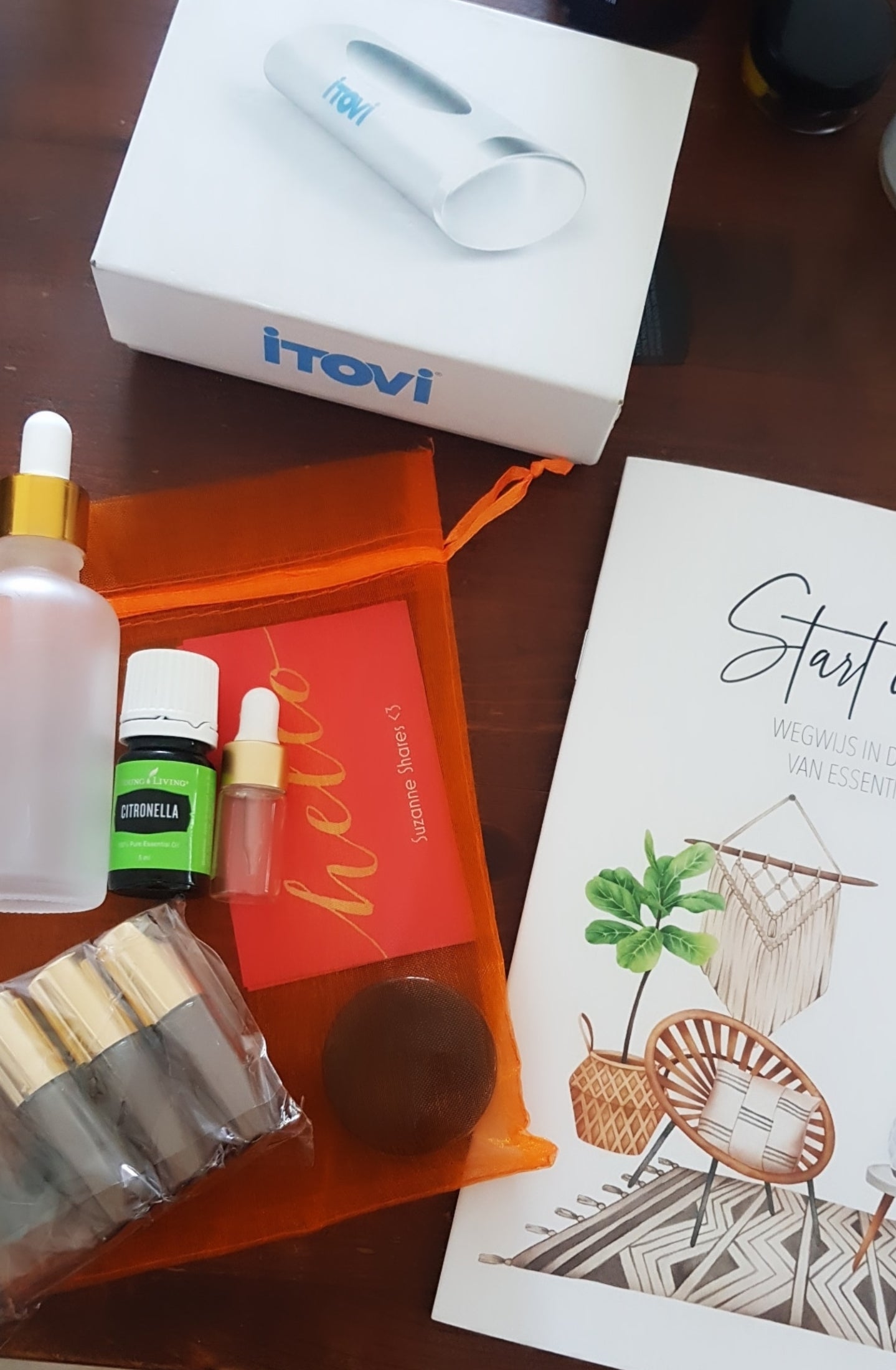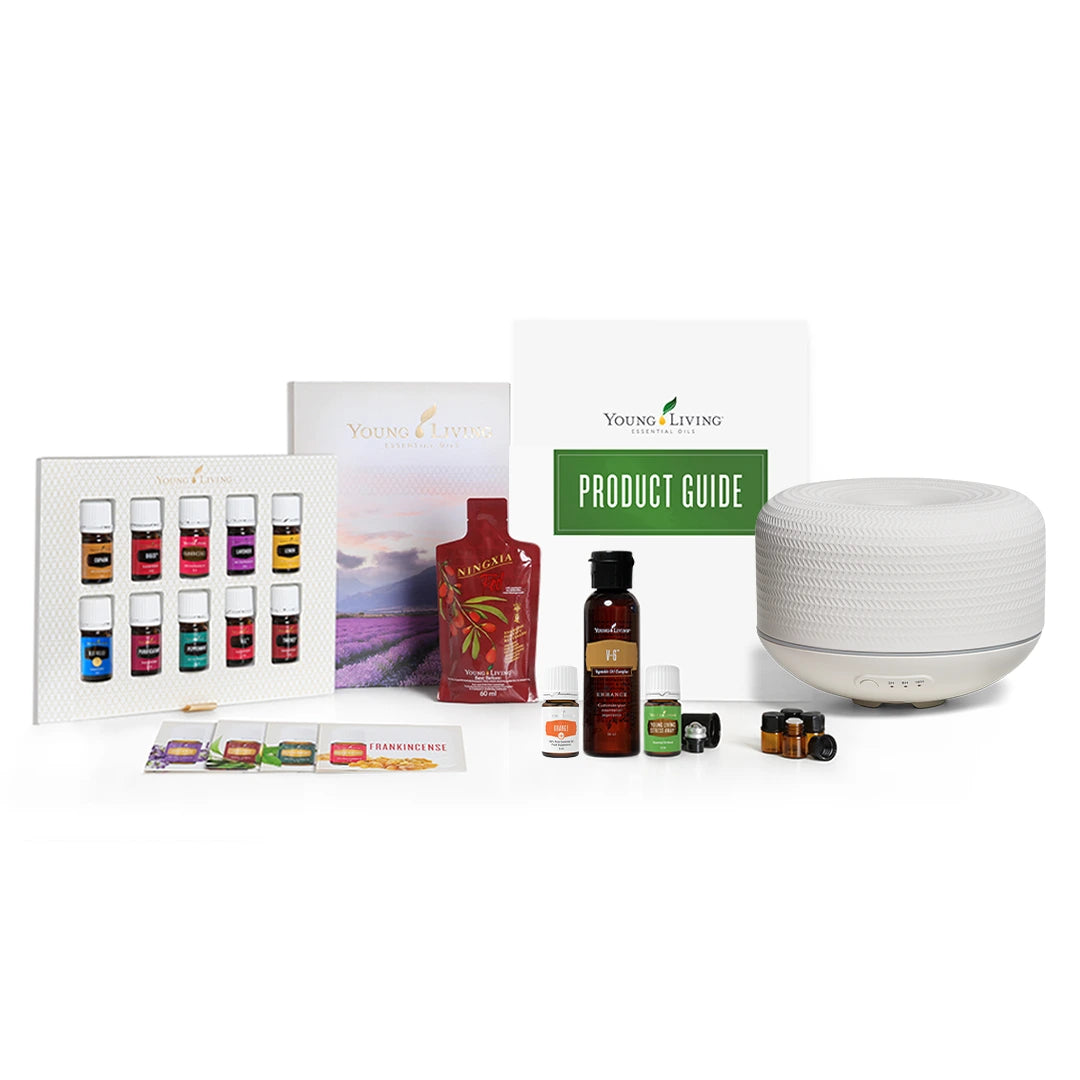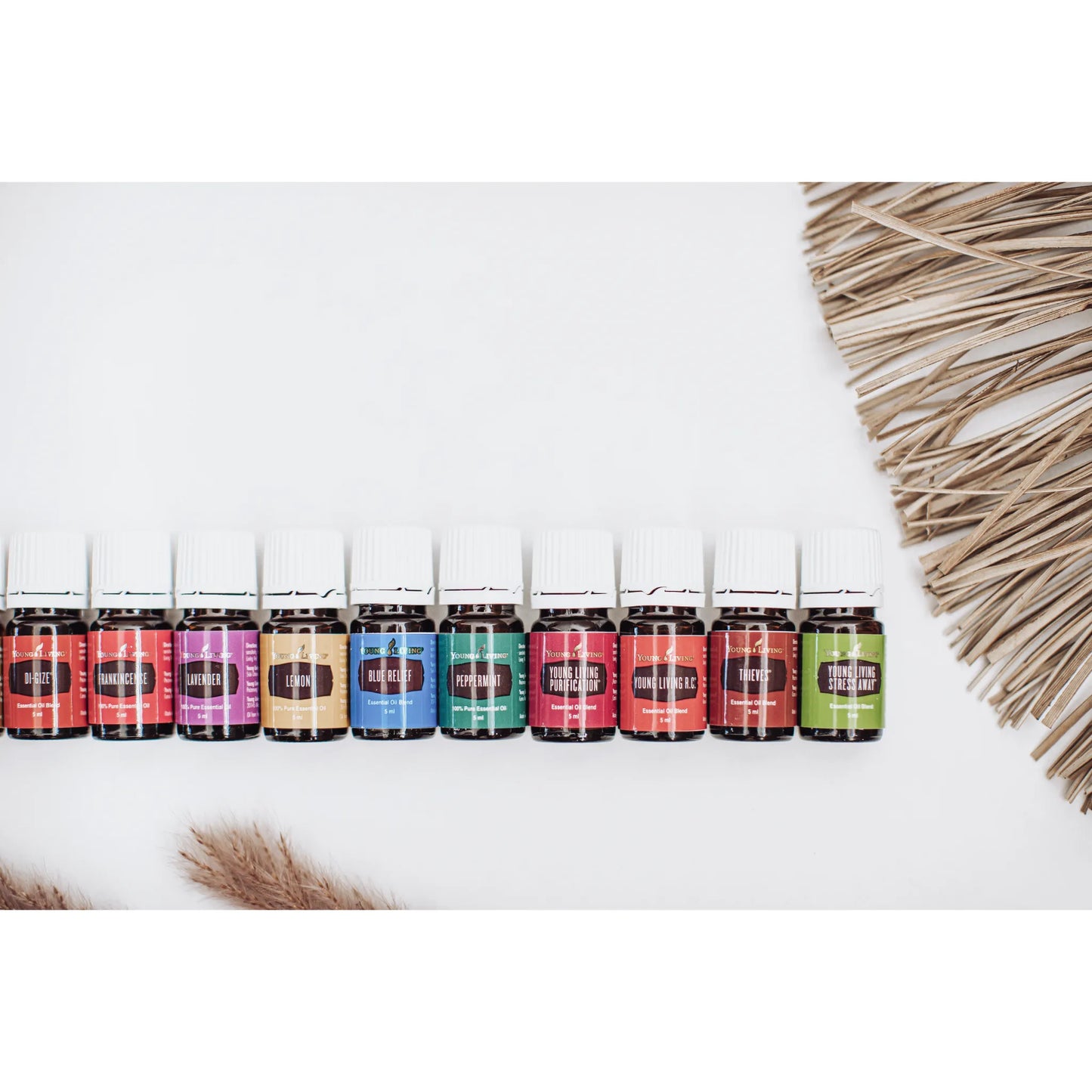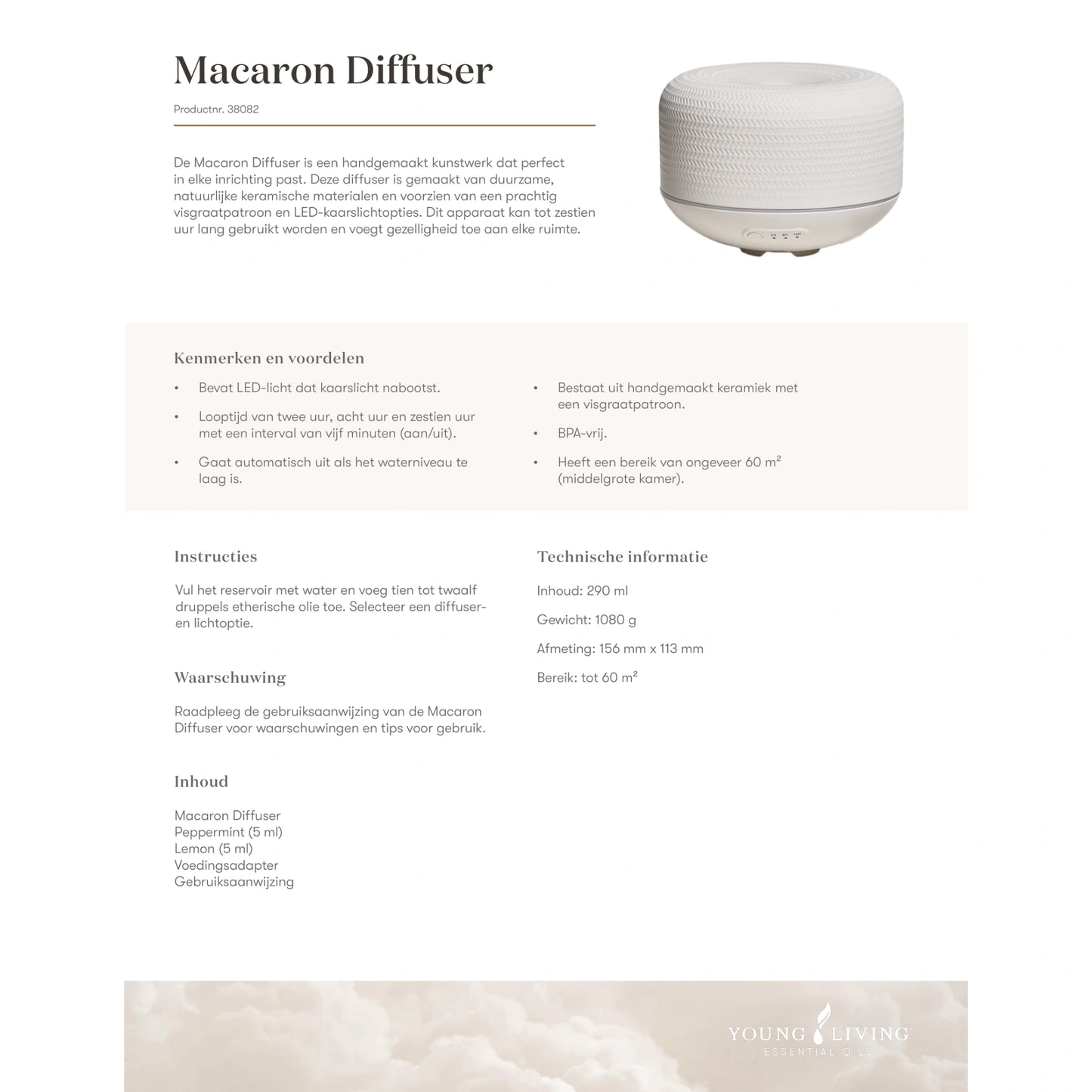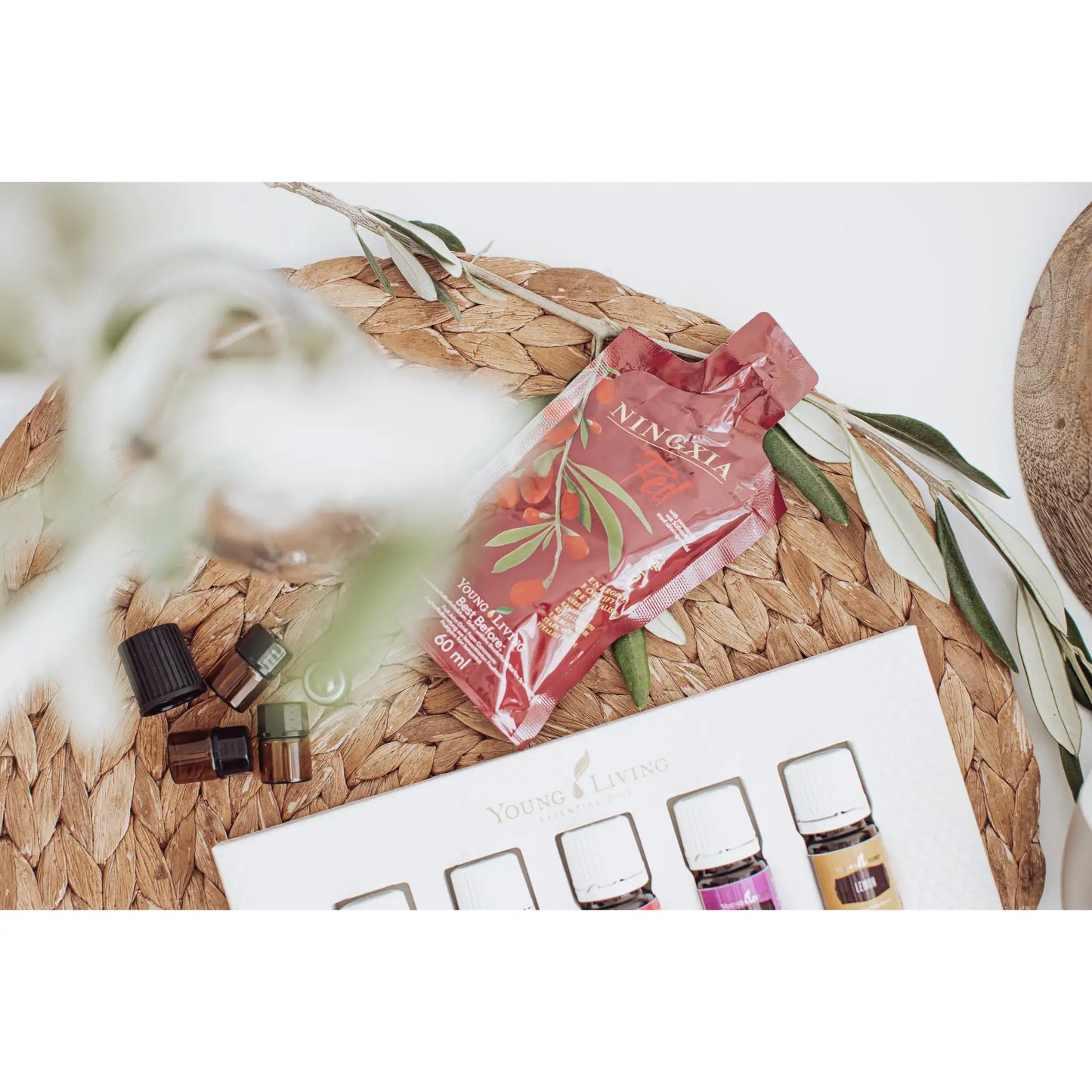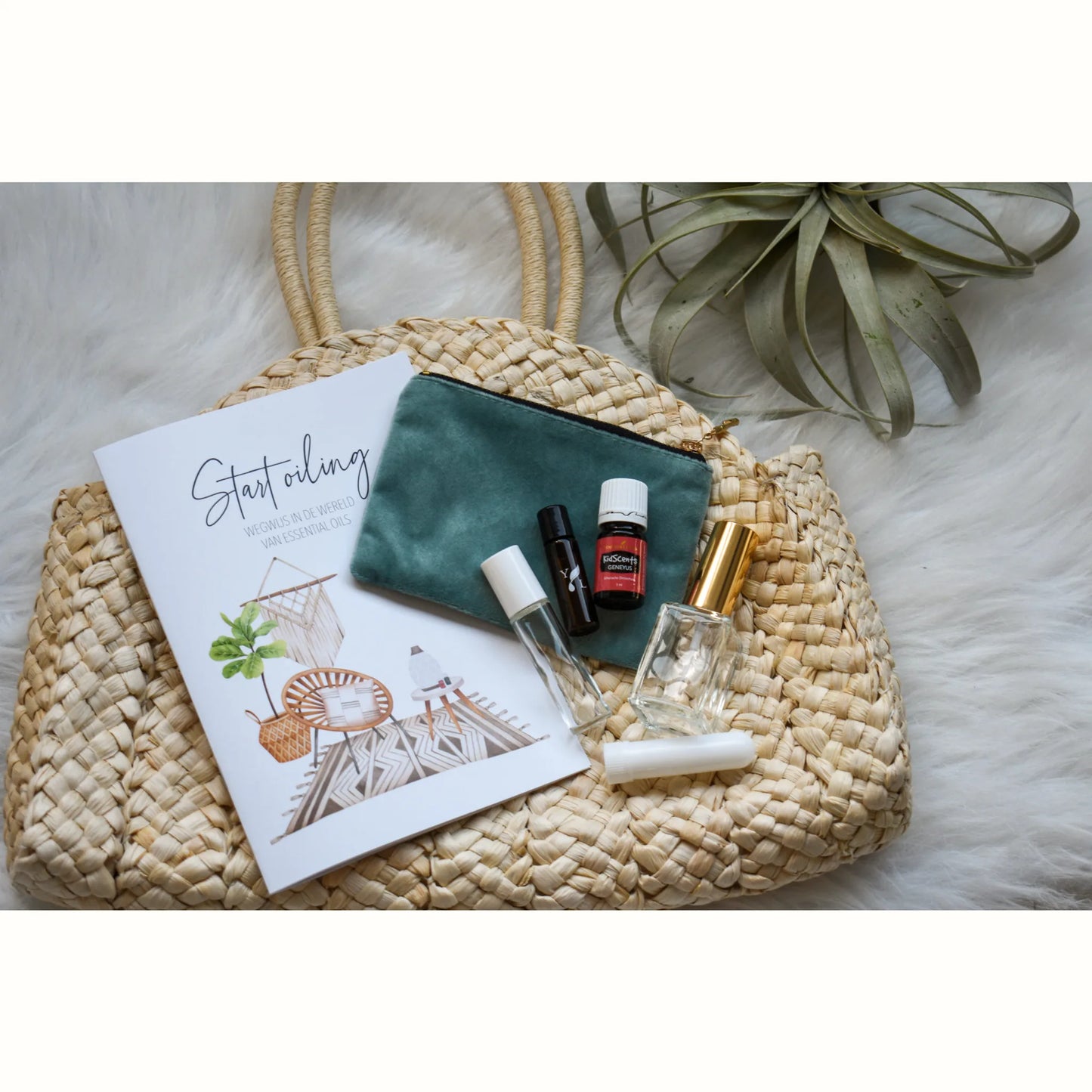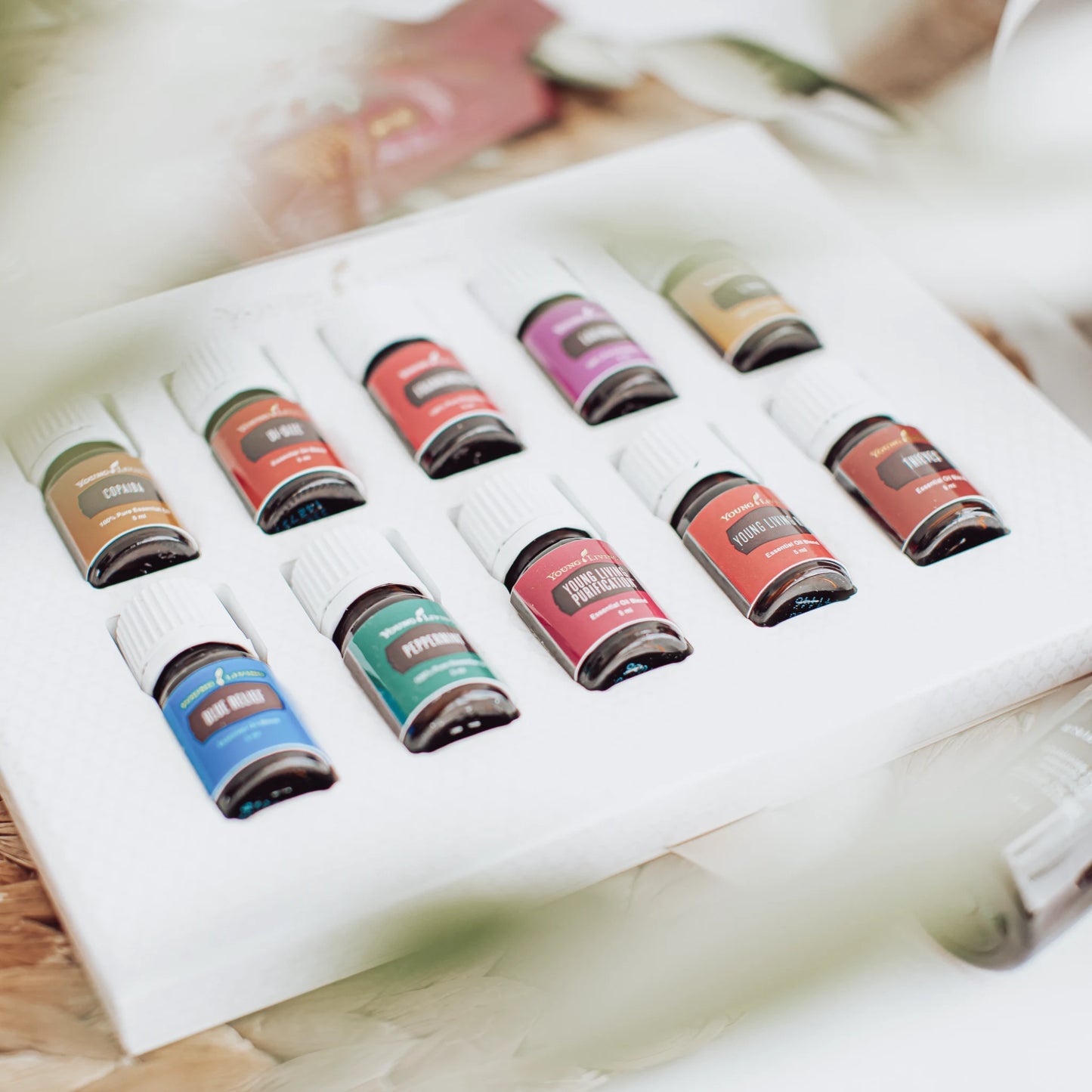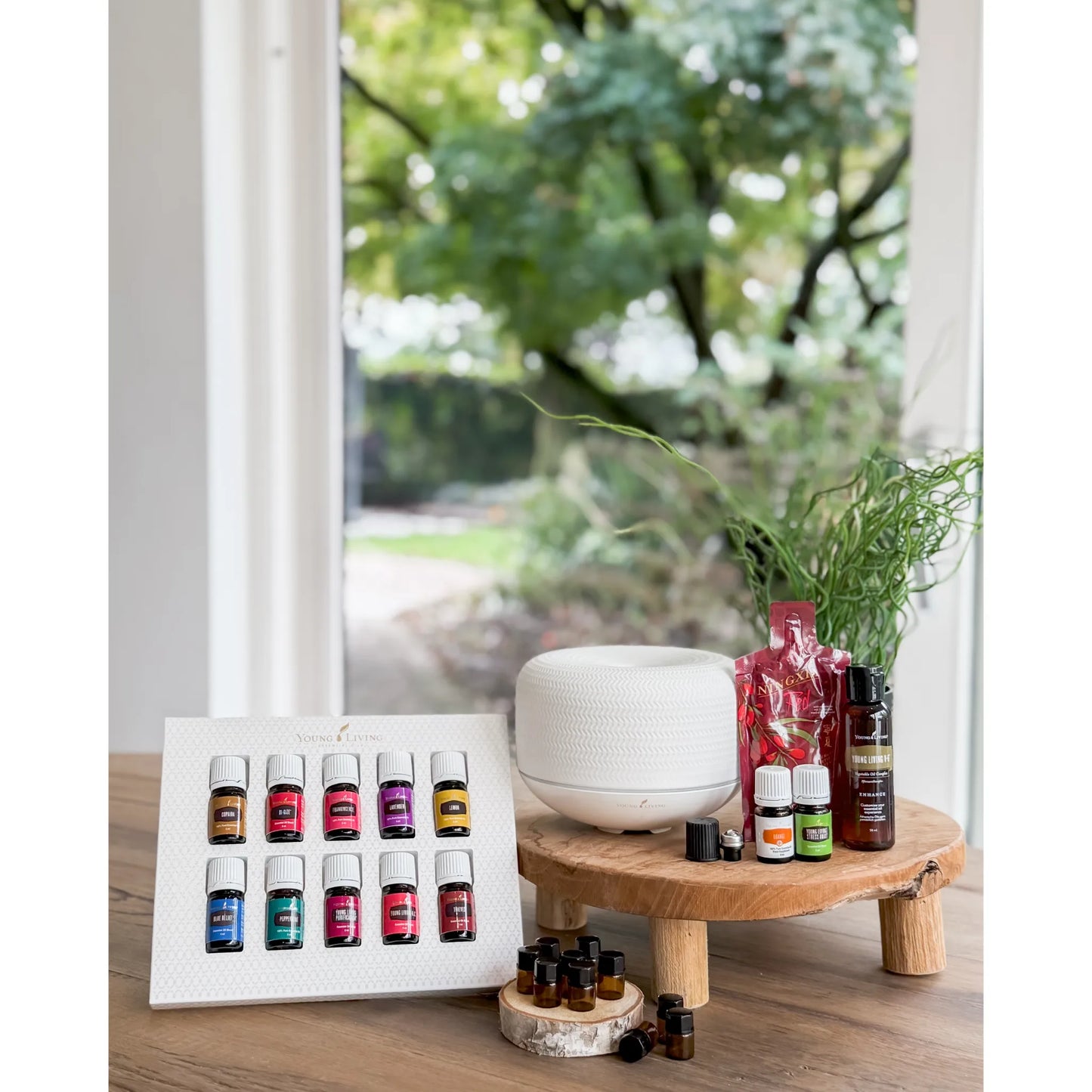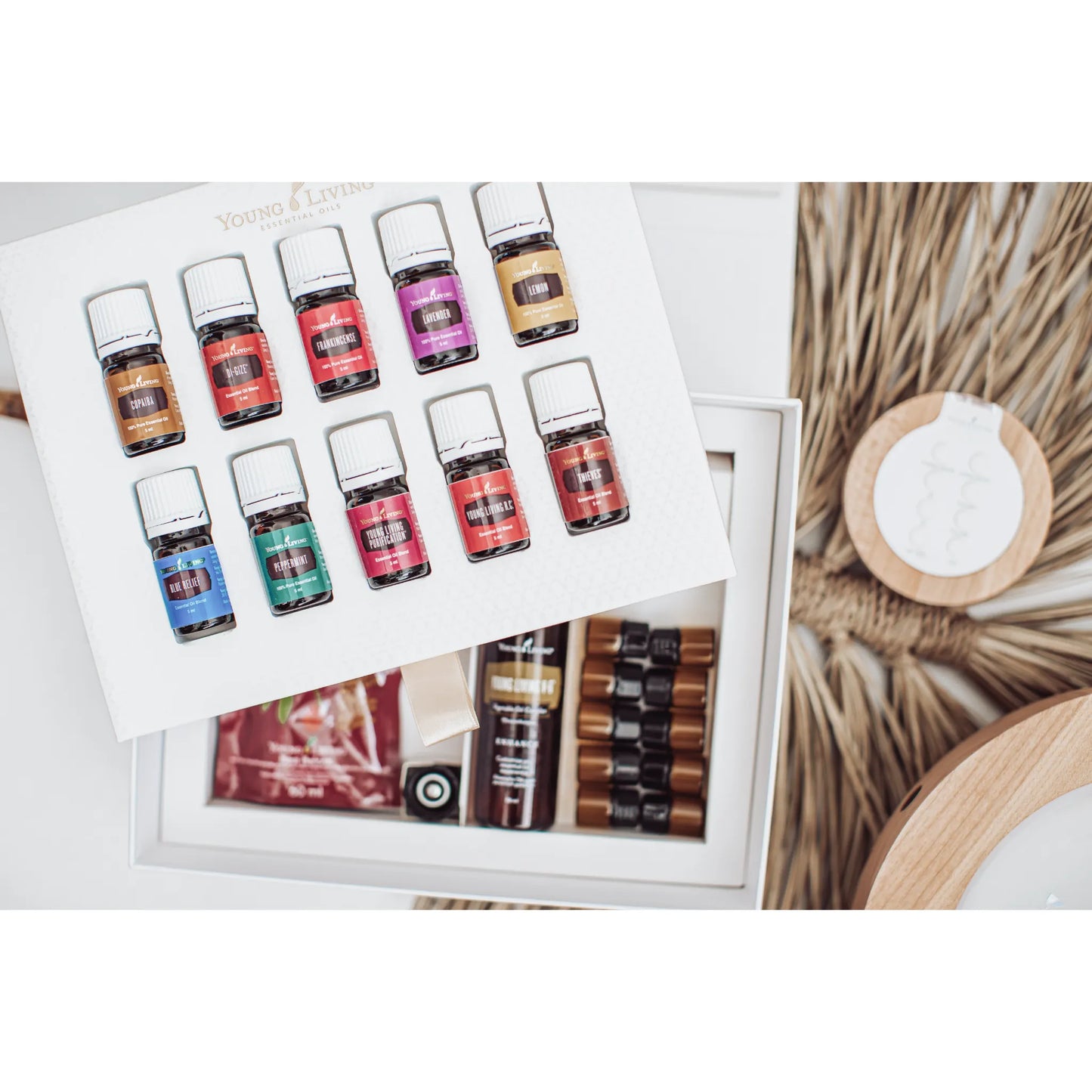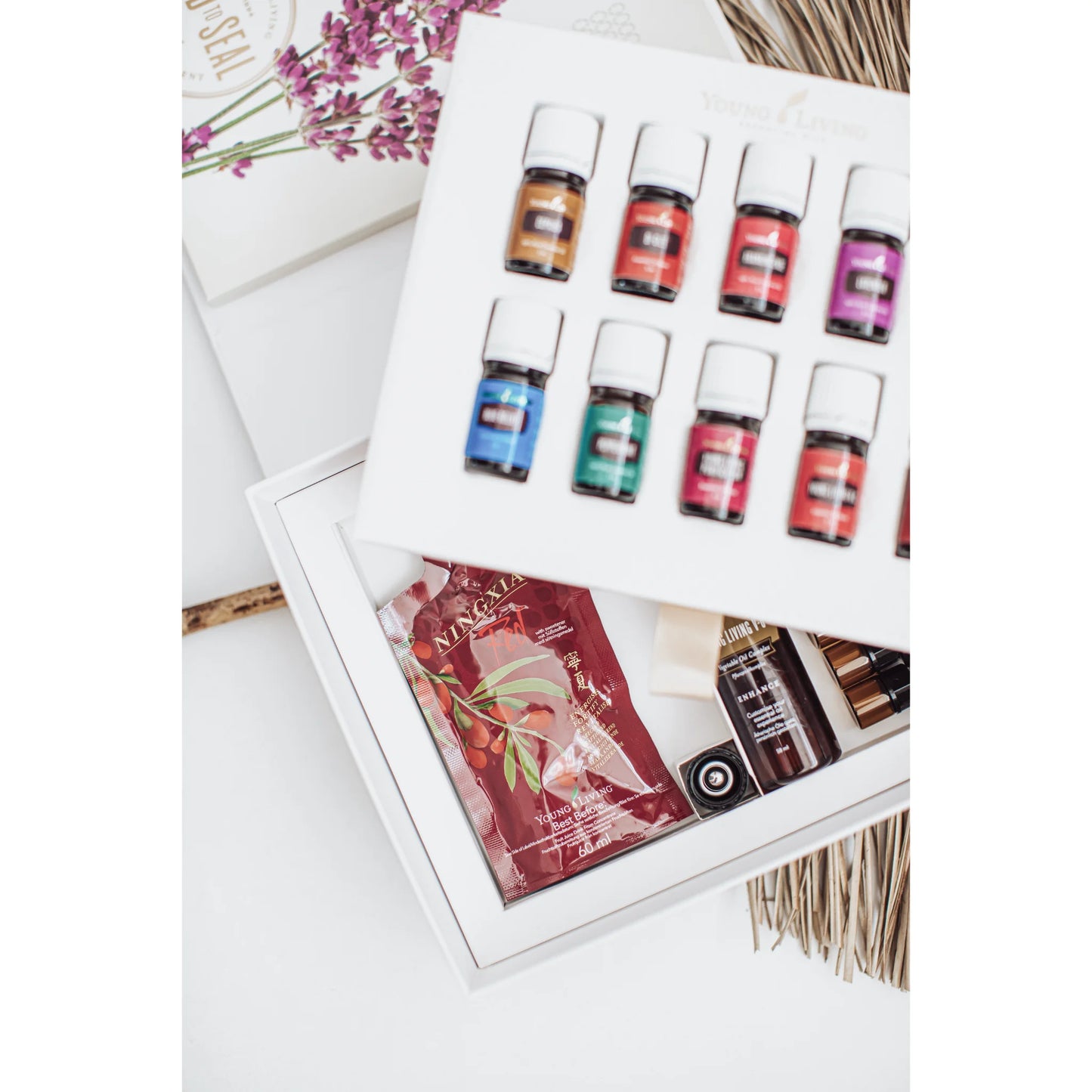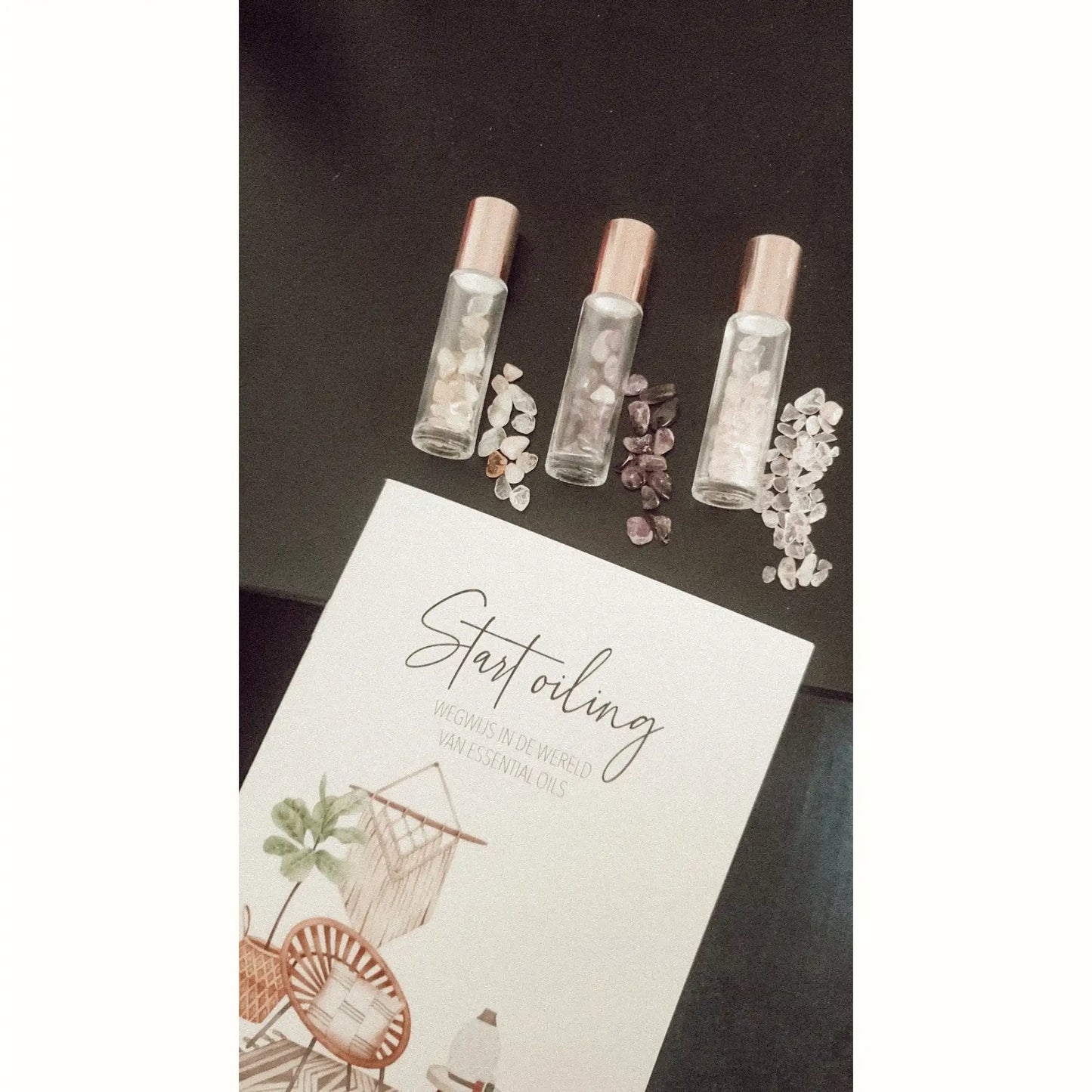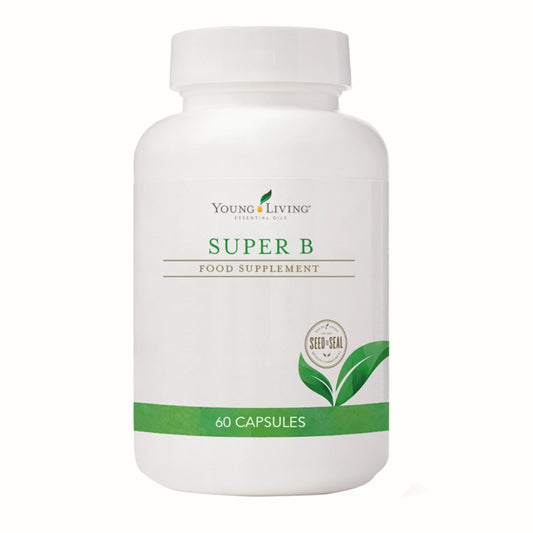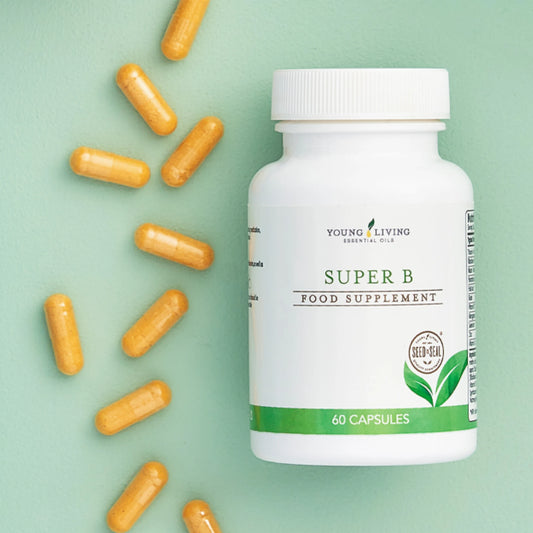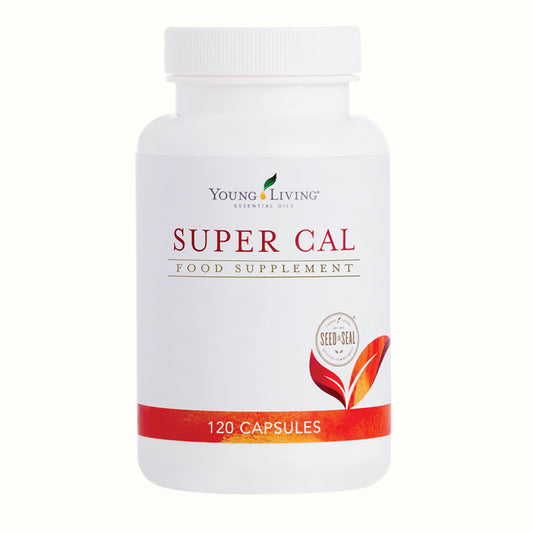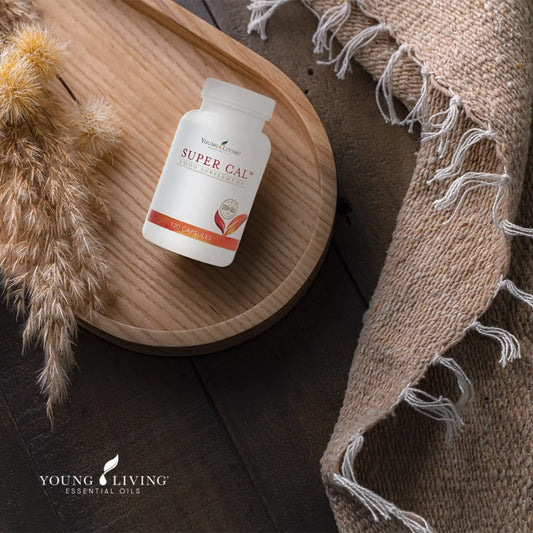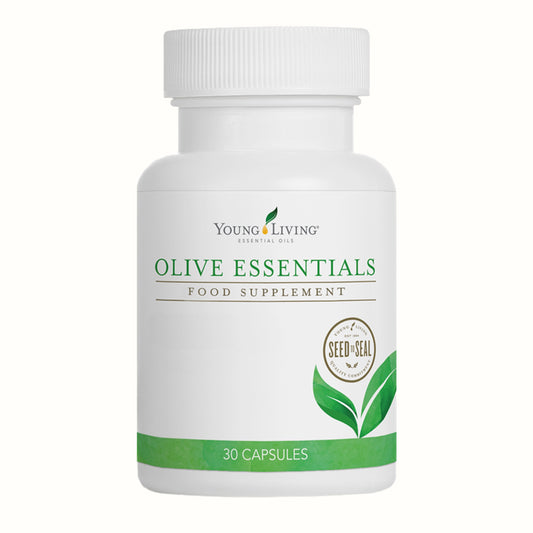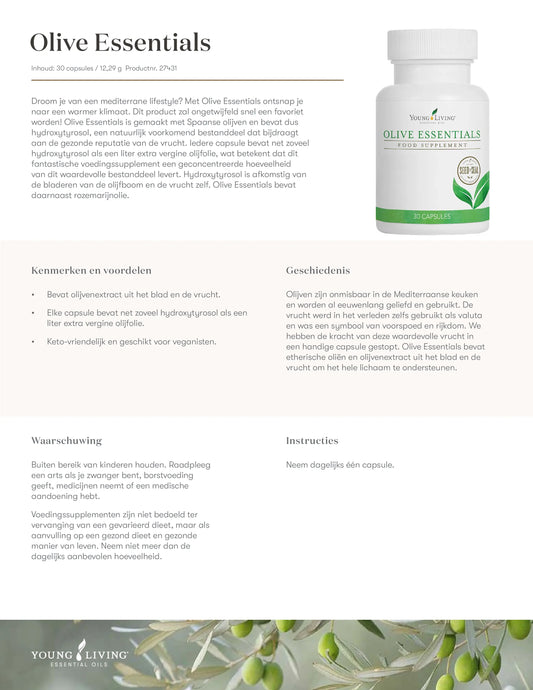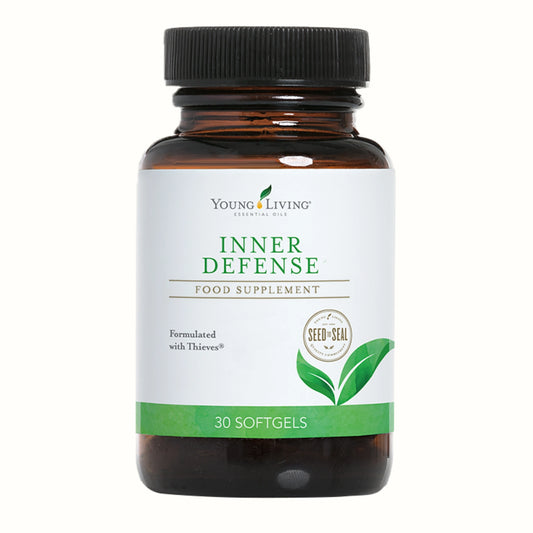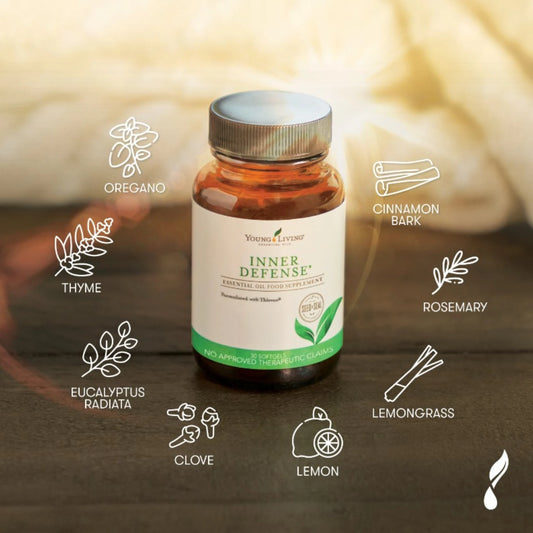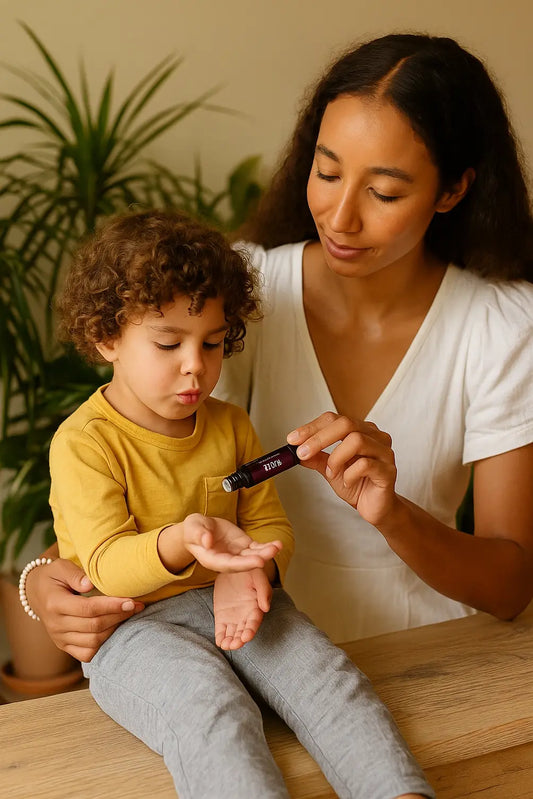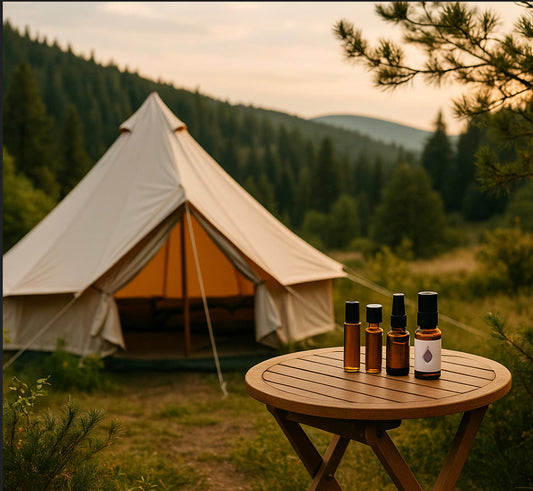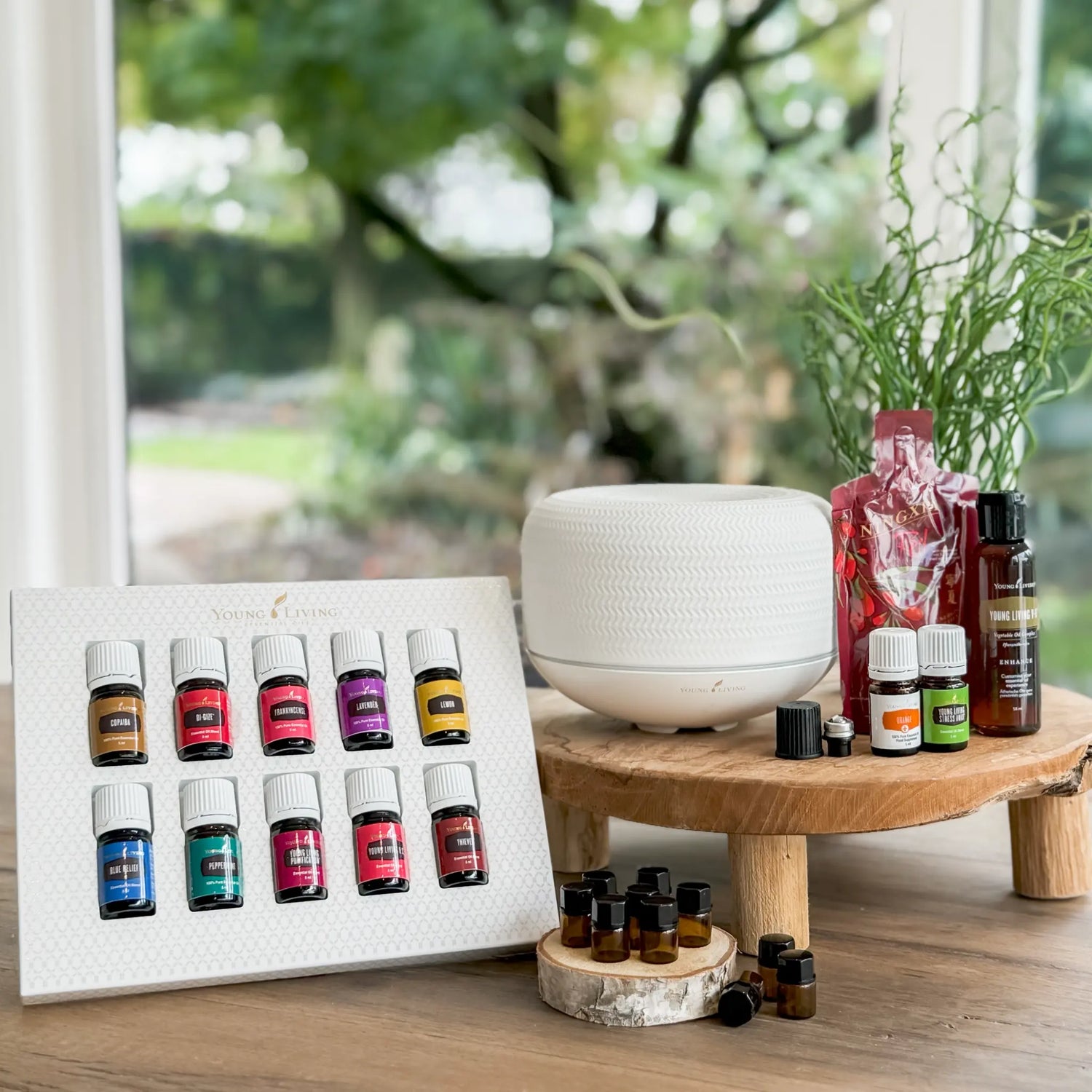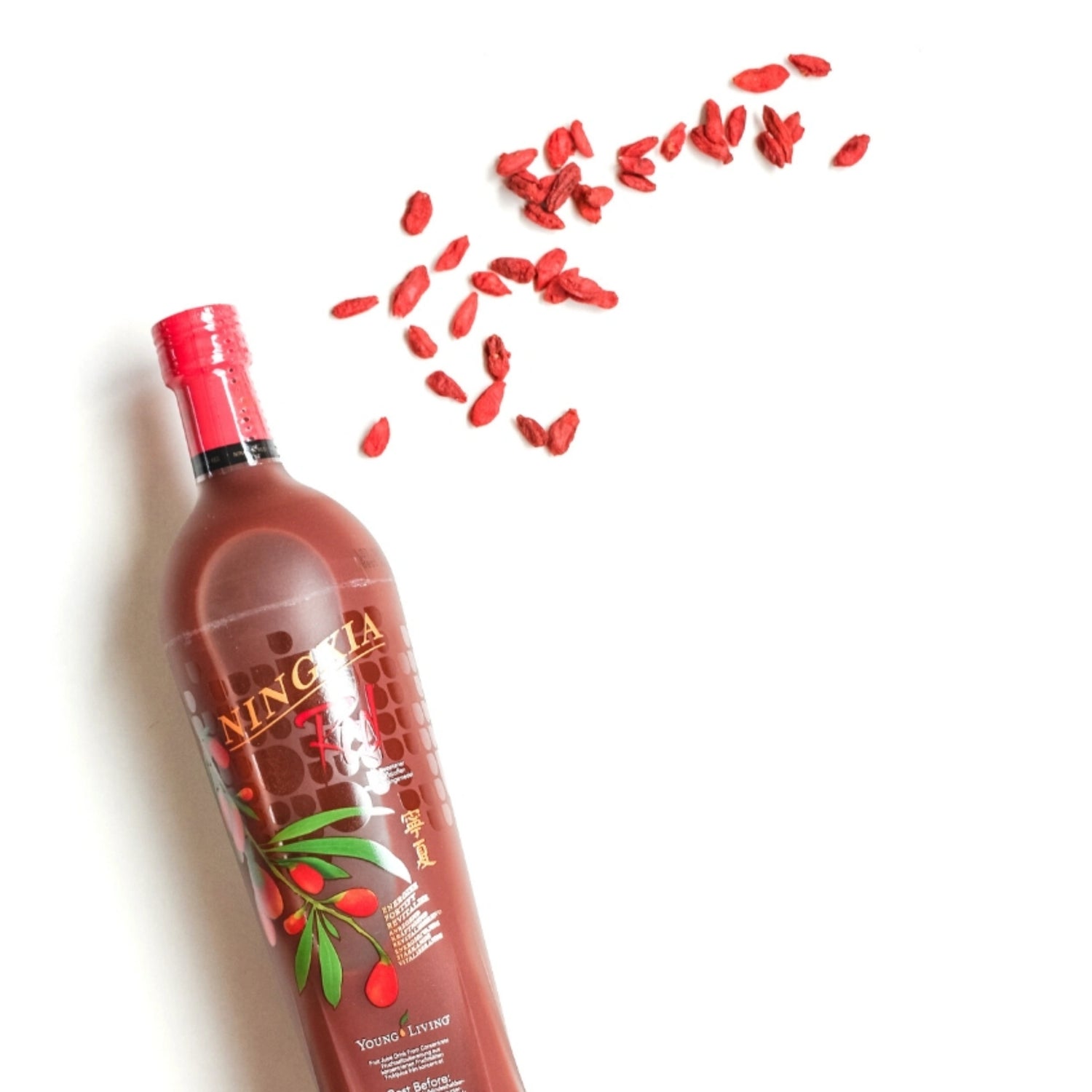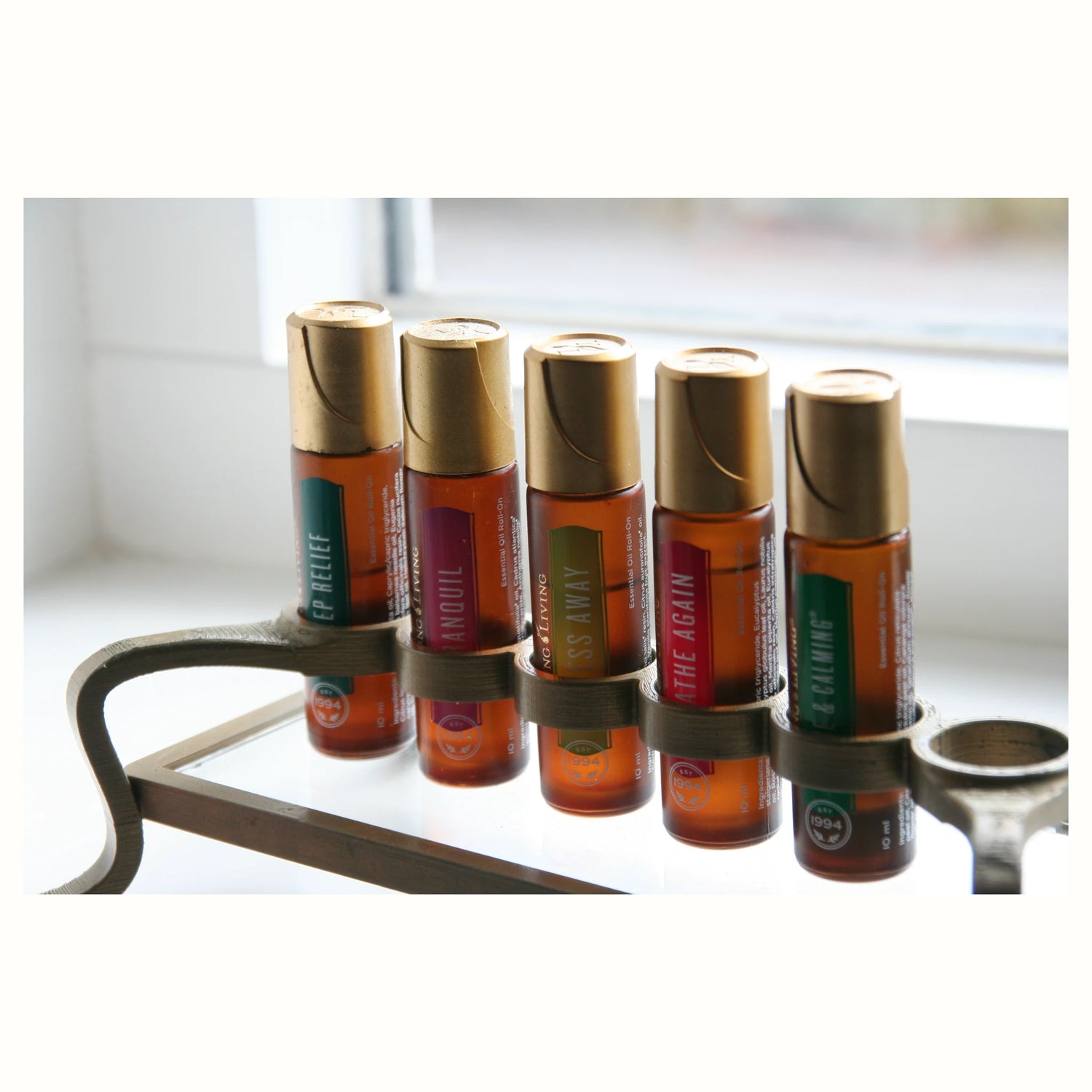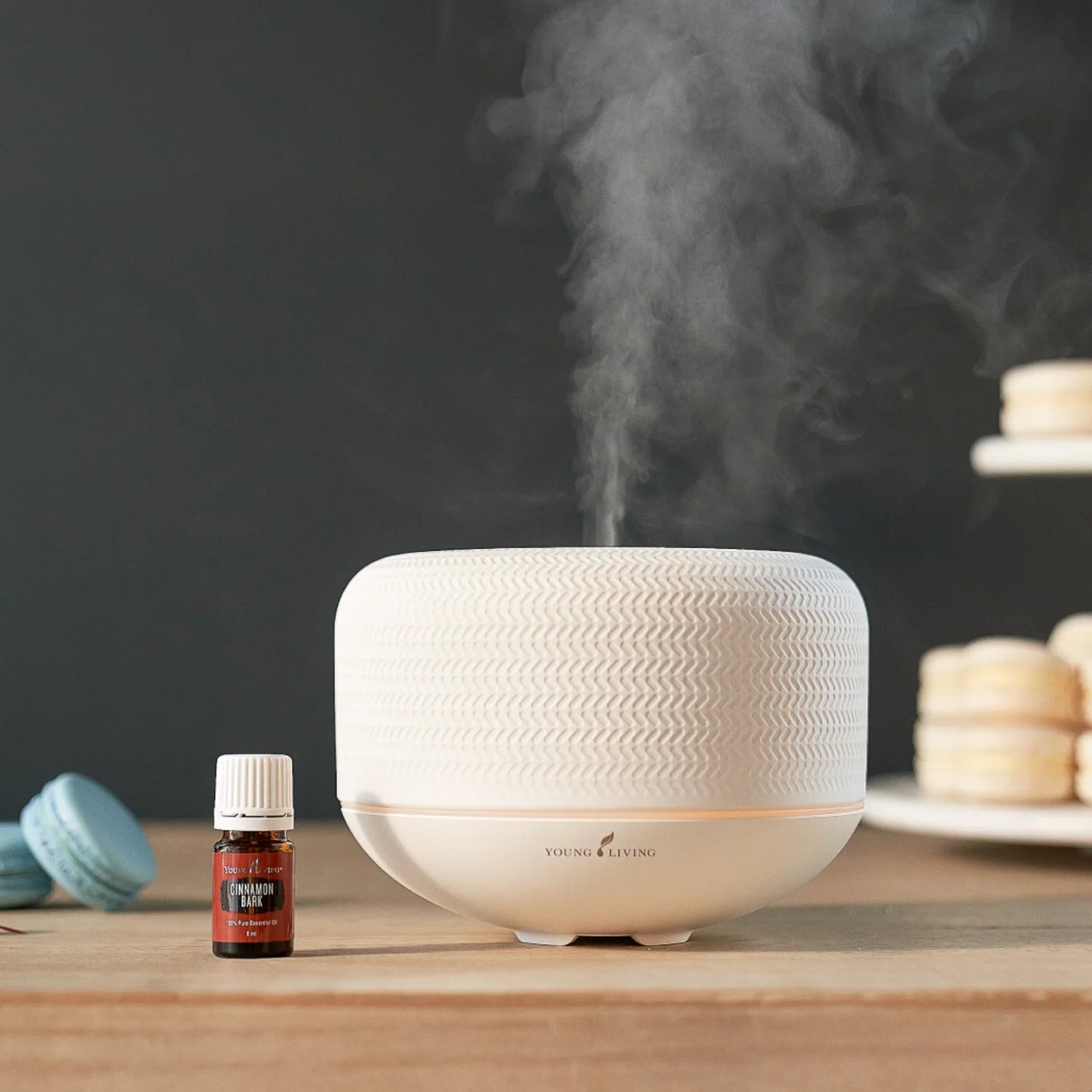
Are Essential Oils Safe to Ingest? All About Internal Use 🌿
Can essential oils be used internally?
Essential oils have been used for centuries for their healing properties. From aromatherapy to skin care and even household uses, these powerful plant extracts have countless benefits. But what about internal use? Are essential oils safe to ingest? And if so, which oils are suitable?
In this blog we delve into the history of internal use of essential oils, look at scientific research and give tips on how to do this safely with, for example, Young Living Vitality Oils (also known as Plus oils in Europe).
The History of Internal Use of Essential Oils
The use of plants and their extracts for medicinal purposes goes back thousands of years.
🌿 Ancient Civilizations – The Egyptians used essential oils in medicines and balms as early as 4500 BC. In India, Ayurveda often used herbs and oils for internal balance.
🌿 Greek and Roman times – Hippocrates, the “father of medicine”, wrote about the therapeutic use of plant extracts, both externally and internally.
🌿 Middle Ages – Monks and early physicians used essential oils in potions and tinctures to support health.
🌿 Modern Aromatherapy – The 20th century saw renewed exploration of the use of essential oils, with internal applications remaining particularly popular in French medical aromatherapy.
Nowadays, the internal use of essential oils is still practiced, but there are strict guidelines. Not all oils are suitable, and it is important to always use high-quality, pure oils. Without dangerous fillers and toxic chemicals.
What does science say?
Research into the internal application of essential oils is increasing. Some oils have been shown to have antimicrobial, anti-inflammatory and antioxidant properties.
📌 Lemon Oil and Digestion – A study published in Food and Chemical Toxicology (2014) shows that lemon oil contains antioxidants that support the liver and promote digestion.
📌 Peppermint Oil and the Gut – Research in BMC Complementary Medicine and Therapies confirms that peppermint oil can help reduce symptoms of irritable bowel syndrome (IBS). It relaxes the gut and reduces bloating.
📌 Oregano Oil and Immune System – A study from Frontiers in Microbiology suggests that oregano oil has powerful antibacterial and antiviral properties and may support immunity.
While these studies are promising, it is crucial to use essential oils internally with care and knowledge . Not all oils are suitable and dosage is very important.
Which essential oils are safe to use internally?
Not all essential oils are suitable for internal use. Be careful to only use oils that are specifically approved as a food supplement , such as Young Living Vitality Oils (known as the Plus line in Europe).
✅ Safe Essential Oils for Internal Use
✔ Lemon+ (Lemon) – Supports digestion, works as an antioxidant and helps the body's natural cleansing. Tip: add a drop to a glass of water.
✔ Peppermint+ (Peppermint) – Helps with bloating, supports breathing and gives a fresh taste. Tip: add a drop to herbal tea.
✔ Oregano+ – Known for its powerful immune-supporting properties. Tip: mix a drop with a tablespoon of olive oil and take it in a capsule.
✔ Lavender+ (Lavender) – Supports relaxation and a good night's sleep. Tip: add a drop to honey and stir into a cup of tea.
✔ Thieves+ – A powerful blend with clove, lemon, cinnamon, eucalyptus and rosemary, which supports the immune system. Tip: add a drop to warm tea for a cold.
How to use essential oils safely internally?
To use oils safely internally, follow these guidelines:
🛑 Use only high-quality oils – Always choose oils that are suitable as a nutritional supplement, such as Young Living Vitality Oils (Plus line) .
🛑 Use small amounts – Start with 1 drop and build up slowly as needed.
🛑 Mix with a carrier – Essential oils are powerful. Always mix them with water, oil, or food.
🛑 Avoid sensitive oils – Some oils, like cinnamon and thyme, are very strong and need to be diluted.
🛑 Not suitable for everyone – Pregnant women, children, and people with medical conditions should exercise caution. Always consult a professional.
Frequently Asked Questions
1. Can you ingest all essential oils?
No! Only oils that are approved as food supplements, such as Young Living Vitality Oils (Plus line), are safe for internal use. Cheap synthetic oils are absolutely not suitable.
2. How many drops can I use internally?
Always start with 1 drop and mix with water, oil or food. More is not always better!
3. Can you take essential oils daily?
Yes, but vary and use them in moderation. It is best not to take the same oil every day to prevent habituation.
4. Can I drop essential oils directly onto my tongue?
This is not recommended for some oils, because some oils are too strong and can irritate the oral mucosa. Always mix them with liquid or food.
5. Which oil helps with bloating?
Peppermint oil has been scientifically proven to be effective against digestive problems and can help with bloating.
Conclusion
Essential oils are safe to use internally as long as you do it correctly. Always choose oils that are approved as dietary supplements, such as Young Living Vitality Oils (Plus line) , and stick to the recommended dosages.
View the most affordable starter packages here .
At Suzanne Shares we have more than 6 years of experience and we are happy to guide you with a holistic view of your well-being.
Contact us for a measurement and your personal plan!
Read more: What the biomarker scan reveals within minutes. 💛

